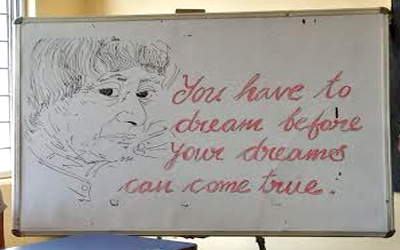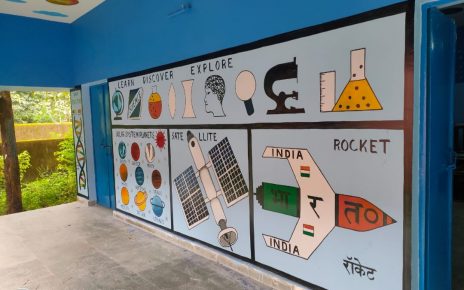Ranchi, Jharkhand – At the Radisson Blu Hotel, the Behtar Jharkhand initiative and the Federation of Jharkhand Chamber of Commerce and Industry joined hands to organise an interactive session titled ‘Eastern India – Engine of Growth for Viksit Bharat’. The event brought together a distinguished gathering, including the Chief Guest, Union Minister of Finance and Corporate Affairs, Smt. Nirmala Sitharaman, and the Guest of Honour, Former Chief Minister of Jharkhand, Shri Babulal Marandi, alongside prominent personalities from various fields like civil society, healthcare, academia, arts, entrepreneurship, and local governance.
The Federation of Jharkhand Chamber of Commerce & Industries, formerly recognised as the Chotanagpur Chamber of Commerce & Industries, traces its roots back to its parent organisation established on September 15th, 1960.
The theme of the event underscored a vision of leveraging the potential of the eastern region of India to drive the holistic development and progress of the nation as a whole. The wealth of natural and human resources, coupled with its vibrant cultural heritage, positions Eastern India as a significant catalyst for economic growth, innovation, and sustainable development.
Union Minister of Finance and Corporate Affairs, Smt. Nirmala Sitharaman, lauded Jharkhand’s development endeavours, dismissing assertions of neglect by the Centre underscoring significant allocations in the FY25 interim Budget. She highlighted a historic allocation of Rs 7234 crore dedicated solely to railway projects in Jharkhand, marking a substantial increase from previous years.
Moreover, she underscored Prime Minister Modi’s leadership in spearheading remarkable developments in the state, including 100% railway electrification by November 2023, redevelopment of 57 railway stations, introduction of three Vande Bharat trains and advancements in infrastructure such as the Varanasi-Ranchi-Kolkata Green Field Corridor. She stressed the strategic value of Jharkhand’s mineral resources, urging for localised investment and manufacturing to drive economic growth. She highlighted the necessity of consulting the Adivasi community to understand their perspectives on growth, acknowledging the Prime Minister’s active efforts for vulnerable groups, citing guidance from the Honourable President Draupadi Murmu. Additionally, she called for reforms to tackle issues like corruption and the underutilisation of youth talent in the region.
During his address, Shri Babulal Marandi praised the Behtar Jharkhand initiative for its instrumental role in shaping a development strategy that will benefit the people of Jharkhand in the long run. He commended the efforts of the Central Government, specifically mentioning the Vishwakarma Scheme which provides end-to-end support to artisans and craftspeople who work with their hands and tools. He also highlighted the importance of learning from various tribal communities across India and suggested the creation of a ‘tribal cultural corridor’ as a novel approach to promoting collective growth.
While addressing the audience, Mr. Vivek Singh, one of the Convenors of Behtar Jharkhand stated that one of the most significant policy declarations concerning Eastern India occurred during the Interim Budget 2024, wherein the Honourable Finance Minister emphasised the government’s commitment to empowering the Eastern region and its population as key contributors to India’s economic advancement.
He further highlighted “This statement isn’t an isolated one; it reflects the consistent efforts made towards the development of East India in recent years, instilling hope for the future. While there is still much to accomplish, the transformation of East India is already underway. For instance, on March 1st, 2024, Prime Minister Narendra Modi inaugurated a revamped 12.7 LMT urea plant in Sindri, Jharkhand, a project revived nearly two decades later. This event follows the inauguration of two additional fertiliser plants in Gorakhpur and Barauni, symbolising the resurgence of the Eastern region as a significant hub for fertiliser production – a status it had lost for the past two decades.”
Similarly, Mr. Mayur Shekhar Jha, another Convenor of Behtar Jharkhand remarked “The aim of Behtar Jharkhand is not to crib about what went wrong in hindsight. We aspire to bring together diverse Jharkhandi stakeholders to work for a better tomorrow.” He also emphasised upon the three-pronged approach of the Behtar Jharkhand initiative.
Essentially, the Behtar Jharkhand initiative rests on three pillars – firstly, going back to one’s roots; secondly, thinking beyond mines and minerals; and thirdly, the creation of tribal culture corridors. It brings together individuals with ties to Jharkhand to bridge the gap between its potential and current status. By tapping into their expertise, it unlocks new development opportunities.
Traditionally reliant on mining, Behtar Jharkhand acknowledges the need for a broader economic approach. It promotes value addition, entrepreneurship, and economic diversification for stable growth, reducing dependency on mining. Additionally, the initiative emphasises inclusive development, respecting tribal communities and their cultural heritage. It advocates for tribal culture corridors to align development with traditional wisdom, ensuring harmony between progress and cultural values.
Through a series of planned events, Behtar Jharkhand aims to foster dialogue and cooperation on themes such as the economy, livelihoods, and diaspora engagement. Before this interactive session, the Behtar initiative had already arranged two events recently. One occurred in Delhi, and the other was held in Ranchi at the Audrey House, where Shri Babulal Marandi felicitated exemplary tribal artisans from Jharkhand and its neighbouring states such as West Bengal, Odisha, Chhattisgarh, Bihar, and Assam. These initiatives seek to encourage discussion, share knowledge, and cooperate on development strategies rooted in local culture, potentially setting examples for other areas.




